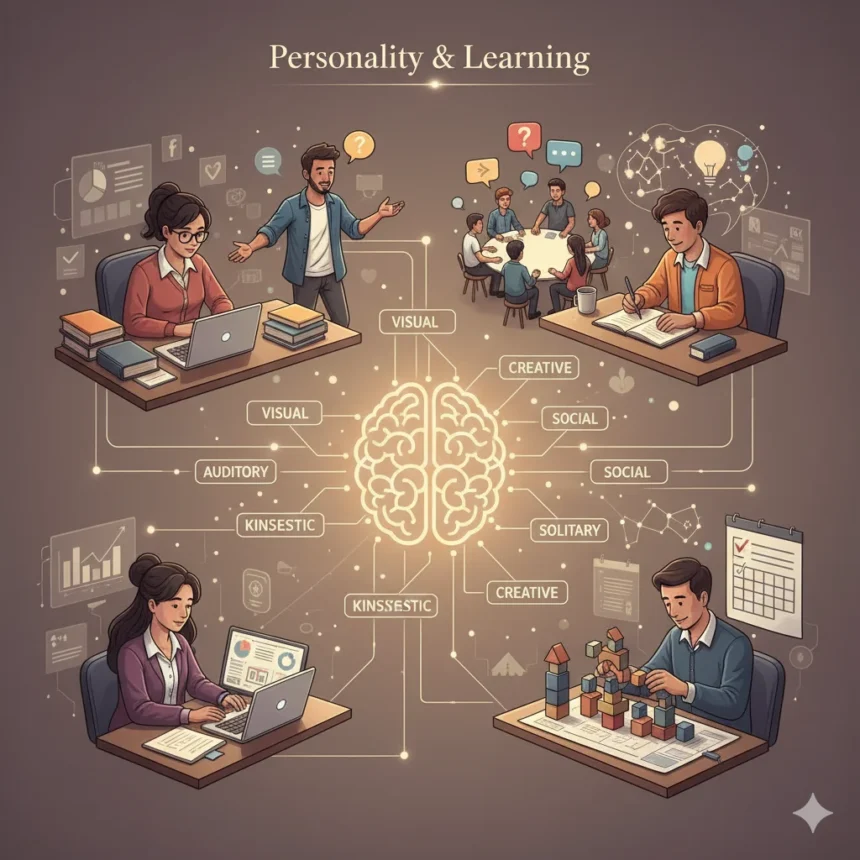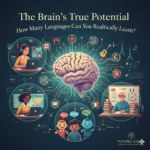The stereotype of the smartest person in the room is often the one who absorbs new information the fastest. But what if the true advantage isn’t speed, but strategy? You don’t need to be the quickest to be the most effective learner; you need to know how you learn best.
The secret to unlocking your personal growth potential lies in a powerful, underutilized tool: personality theories. Understanding these theories is the foundation of self-mastery.
Which is a Good Reason to Learn About Personality Theories? The Answer is Personalized Growth
The goal is to move past the traditional one-size-fits-all model of education and into an era of truly personalized learning. If you’re interested in how technology is making this possible, read our analysis on the role of The Personal AI Tutor.
The single best reason to learn about personality theories is to reflect on your own personality from a different perspective and use that knowledge to adapt your approach to the world.
Personality theories provide a framework for understanding why you think, feel, and behave in certain ways. They explain the fundamental differences in how people interact with their environment, which is crucial for maximizing your potential and minimizing unnecessary struggle.
Here are the key benefits:
- Self-Awareness: You learn your own strengths and weaknesses and how to manage them. For example, knowing you score high on Conscientiousness (a trait from the Big Five model) can explain your natural ability for organization and goal-setting.
- Optimal Learning Strategies: You can tailor your study or skill-acquisition methods to your natural preferences, leading to deeper retention and less frustration. (We’ll dive into this below.)
- Better Understanding of Others: By recognizing the core traits in others, you can better understand and respond to their needs. This is invaluable in teams, relationships, and leadership.
- Improved Conflict Resolution: You can spot the source of misunderstandings in relationships. For instance, an Extrovert might get energized by group study, while their Introvert partner needs solitude to retain information, leading to friction if their needs aren’t understood.
How Personality Drives Your Learning Style
Your personality traits aren’t just labels; they’re blueprints for how your mind processes information and interacts with the learning environment. Learning about personality theories helps you figure out how personality tests can help your study habits by matching your inner wiring to external tasks.
The Big Five Traits and Learning Impact
The Big Five personality model (OCEAN) is a particularly useful tool for understanding learning:
| Trait | High Score Tends To | Optimal Learning Strategy |
| Openness to Experience | Be imaginative, curious, and enjoy novelty. | Thrive on abstract concepts, debates, and exploring new ideas. |
| Conscientiousness | Be organized, purposeful, and self-disciplined. | Excel with structured, detailed study plans and consistent effort. (This trait is a strong predictor of academic success.) |
| Extraversion | Be sociable, energetic, and assertive. | Prefer group discussions, teaching others, and active, hands-on learning. |
| Agreeableness | Be cooperative, sympathetic, and trusting. | Learn well in collaborative environments and respond positively to mentorship. |
| Neuroticism | Be prone to anxiety and emotional instability. | Needs a focus on stress-management techniques and structured environments to reduce anxiety. |
Jung’s Types and Learning Preferences
The Myers-Briggs Type Indicator (MBTI), based on Carl Jung’s theory of psychological types, also offers powerful insight:
- Extroversion (E) vs. Introversion (I): Extroverted learners benefit from talking things out; introverted learners need quiet, focused time to absorb material first.
- Sensing (S) vs. Intuition (N): Sensing types (S) prefer facts, details, and practical application intuitive types (N) like the big picture, theories, and patterns.
- Judging (J) vs. Perceiving (P): Judging types (J) prefer a structured, organized approach (like a detailed calendar and checklist). Perceiving types (P) prefer a flexible environment where they can explore and adjust.
By matching these preferences to your learning environment, you move from passively trying to keep up to actively designing a study regimen where you naturally excel.
Beware of the Pitfalls of Typing
While personality theories are powerful, they aren’t flawless. What are two concerns with personality tests? Two main problems are:
- Over-simplification (The Halo Effect): Clinging too tightly to your type can lead to rejecting new experiences or labels that don’t seem to fit. For example, an extrovert might avoid solitary activities they would genuinely enjoy because they assume that’s not for my type.
- Lack of Predictive Power for Specific Success: While high Conscientiousness predicts better academic performance generally, a test won’t tell you if you’ll love a specific job or major only whether you have traits that will make the work easier.
Personality is generally stable, but the environment and Experience can influence it. The goal of learning these theories is not to put yourself in a box, but to use the box as a launchpad for smarter personal and professional growth.
In the end, the quickest learner isn’t the smartest; the strategist is. And the strategist knows herself best.




